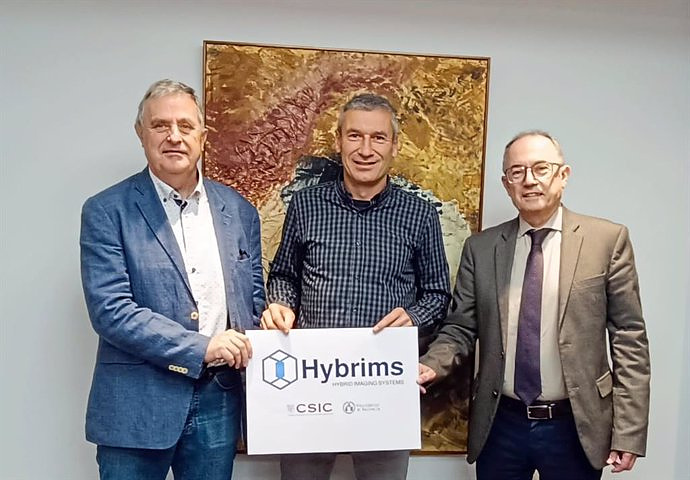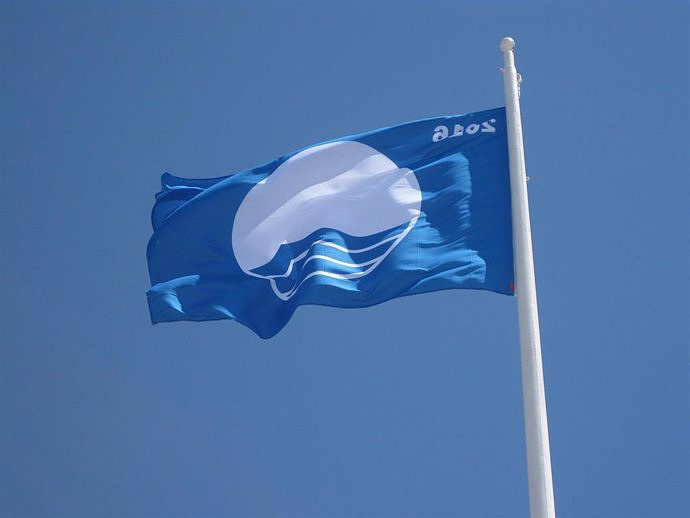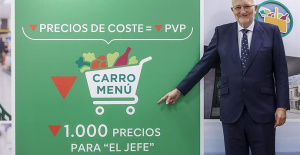Opposition groups accuse the 'purples' of wanting to whiten their image and attack again against the turn of the Government
MADRID, 14 Feb. (EUROPA PRESS) -
The PSOE has distanced itself this Tuesday from the bill presented in Congress by United We Can to grant Spanish nationality, under the modality of naturalization letter, to the Sahrawis born until this territory was under Spanish sovereignty in 1976.
Despite the express request of the 'purples' that they support it to resolve the "grievance" of which they have been victims, the Socialists have alleged issues of a legal and technical nature: "We share the goal, which is to end the grievance" of the that the Sahrawis are subject to with respect to "other historical communities", "but we do not share the design", summarized the spokesman for the Socialists, Sergio Gutiérrez, during the debate in plenary session of the Congress of Deputies.
According to the PSOE, the debate is not about the decolonization process or "a thermometer about who more or less supports the Saharawi cause." "We must proceed to equate the procedures and not create different processes, ex novo and express for similar circumstances," argued Gutiérrez, after recalling that Equatorial Guinea was also a Spanish province until its independence in 1968 and without mentioning Morocco in his speech.
The Socialist spokesman has justified his group's rejection of the proposal made by his coalition partner by claiming that the procedure for granting citizenship to people from former colonies is "abbreviated two-year residence."
"It is not a whim," he stressed, referring to opinions of the Council of State and four Supreme Court rulings, among others. All of them, according to the socialist spokesman, stipulate that the Sahara was never Spanish territory for the purposes of granting nationality.
In addition, he has also referred to issues of a political nature, since to end the grievance of the Saharawis another could be created with respect to similar situations, since there is a "political consensus" that was revealed for the last time in 2016, when it was decided that the Sahrawis could opt for nationality by residence within a shortened period of two years.
Finally, in the section on technical issues that dissuade the PSOE from supporting the proposal, there is the fact that it is proposed that the Frente Polisario be "the one who can issue the certificates that facilitate obtaining nationality."
The conciliatory message sent by Enrique Santiago, in charge of presenting the proposal of United We Can before the Plenary, has been of little use. "We ask for your support from all parliamentary groups, regardless of which they believe is the most viable solution for Western Sahara, a position that they will be able to continue to maintain," said the IU spokesman and General Secretary of the Communist Party.
With this, Santiago has once again highlighted the rejection by Unidas Podemos of the turn taken by the President of the Government, Pedro Sánchez, with respect to the Sahara, considering the Moroccan autonomy plan as "the most solid, credible and realistic basis " to resolve the dispute, something that the rest of the spokespersons have also made ugly.
The deputy spokesman for United We Can has defended that Spain has a "historic debt" with the Sahrawis after having "in practice sold the Sahara to Morocco" and has made it clear that for his party the priority is their right to self-determination. "We will do everything possible", he has assured, so that the referendum planned by the UN "so many times postponed" can be held and "they are free to choose their future, the one they want".
In Santiago's opinion, by approving this bill, Congress would show its "proximity" to the Saharawi people and would make "life easier for a people with whom we have a historical debt that we have to settle." "It is not enough to bring children to spend holidays with Spanish families", he stressed, "we must go further".
Although the majority of parliamentary groups, in particular the members of the legislature, have shown their support for the proposal, there have been several who have questioned the moment chosen by Podemos to materialize it.
For the Vox spokeswoman, María Teresa López, "what there is is the purpose of whitening" by Podemos, whose credibility she has questioned due to the fact that they have continued to sit in the Council of Ministers together with the PSOE despite rejecting the turn of Sanchez.
"As much as they want to distance themselves, it is hypocritical" to propose granting citizenship to Sahrawis born before November 1976, he defended, stressing that after the letter to Mohamed VI "We can swallow toads and snakes so as not to break the fateful coalition".
The spokesperson for Ciudadanos, María Carmen Martínez Granados, has also questioned the motives of the 'purples', who has seen in the proposal a "way to publicly atone for their sins for all the times in which this Government acquiesces to what Morocco requests" .
"What they should do is not bring initiatives like this to wash their consciences because they know they have done wrong with the Saharawi people," he added, once again asking the government to explain its change of position regarding the Sahara.
For her part, the spokeswoman for Junts, Mariona Illamola, has shown her surprise at the proposal and has questioned the usefulness of having a Spanish DNI for the Sahrawis, beyond also having European citizenship. Likewise, she has raised whether it will be "another toast to the sun" that will remain in the bottom of a drawer or there are guarantees that it will be fulfilled, to pass the procedure.
The PP has been open to supporting the proposal or at least to contributing to its debate if it passes the first parliamentary process. Its spokesman, Miguel Ángel Jerez, has recognized that "we are facing an unfinished process" for which Spain has "a historical responsibility".
However, he has defended the "need to broaden this debate to determine precisely who should be granted nationality and what scope this recognition should have" and has made it clear that the PP will be "loyal in the search for a solution".
If the proposal prospers, Jerez told Unidas Podemos, "they will find a proactive PP and determined to promote the recognition of citizenship for Saharawis who were born under Spanish rule in their day."
The 'popular', he added, will approach this debate "from serenity and respect, without offending anyone, without opening unnecessary wounds, without deteriorating our international relations, without committing the same clumsiness that a government has committed with the Sahara, Morocco and Algeria in just 24 hours", he stressed.

 Exploring Cardano: Inner Workings and Advantages of this Cryptocurrency
Exploring Cardano: Inner Workings and Advantages of this Cryptocurrency Seville.- Economy.- Innova.- STSA inaugurates its new painting and sealing hangar in San Pablo, for 18 million
Seville.- Economy.- Innova.- STSA inaugurates its new painting and sealing hangar in San Pablo, for 18 million Innova.- More than 300 volunteers join the Andalucía Compromiso Digital network in one month to facilitate access to ICT
Innova.- More than 300 volunteers join the Andalucía Compromiso Digital network in one month to facilitate access to ICT Innova.-AMP.- Ayesa acquires 51% of Sadiel, which will create new technological engineering products and expand markets
Innova.-AMP.- Ayesa acquires 51% of Sadiel, which will create new technological engineering products and expand markets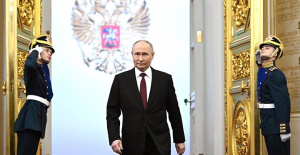 Putin begins his fifth term demanding the "security" and "unity" of Russia
Putin begins his fifth term demanding the "security" and "unity" of Russia Almeida points to the death of two workers after being trapped under an 8-ton slab in Madrid
Almeida points to the death of two workers after being trapped under an 8-ton slab in Madrid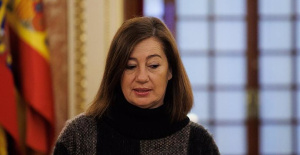 Armengol and two former senior officials from the Balearic Islands, summoned by the Congressional commission on masks
Armengol and two former senior officials from the Balearic Islands, summoned by the Congressional commission on masks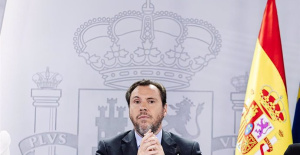 Puente assures that if he had known the impact of his words on Milei he would not have said them
Puente assures that if he had known the impact of his words on Milei he would not have said them How Blockchain in being used to shape the future
How Blockchain in being used to shape the future Not just BTC and ETH: Here Are Some More Interesting Coins Worth Focusing on
Not just BTC and ETH: Here Are Some More Interesting Coins Worth Focusing on They develop devices for the precise diagnosis of cancer patients
They develop devices for the precise diagnosis of cancer patients UMH researchers are working on a high-quality apricot crop that requires less irrigation water
UMH researchers are working on a high-quality apricot crop that requires less irrigation water The UPV develops an application to improve the quality of life of patients with glioblastoma
The UPV develops an application to improve the quality of life of patients with glioblastoma A sensor system obtains the fingerprint of essential oils and detects if they have been adulterated
A sensor system obtains the fingerprint of essential oils and detects if they have been adulterated A million people demonstrate in France against Macron's pension reform
A million people demonstrate in France against Macron's pension reform Russia launches several missiles against "critical infrastructure" in the city of Zaporizhia
Russia launches several missiles against "critical infrastructure" in the city of Zaporizhia A "procession" remembers the dead of the Calabria shipwreck as bodies continue to wash up on the shore
A "procession" remembers the dead of the Calabria shipwreck as bodies continue to wash up on the shore Prison sentences handed down for three prominent Hong Kong pro-democracy activists
Prison sentences handed down for three prominent Hong Kong pro-democracy activists ETH continues to leave trading platforms, Ethereum balance on exchanges lowest in 3 years
ETH continues to leave trading platforms, Ethereum balance on exchanges lowest in 3 years Investors invest $450 million in Consensys, Ethereum incubator now valued at $7 billion
Investors invest $450 million in Consensys, Ethereum incubator now valued at $7 billion Alchemy Integrates Ethereum L2 Product Starknet to Enhance Web3 Scalability at a Price 100x Lower Than L1 Fees
Alchemy Integrates Ethereum L2 Product Starknet to Enhance Web3 Scalability at a Price 100x Lower Than L1 Fees Mining Report: Bitcoin's Electricity Consumption Declines by 25% in Q1 2022
Mining Report: Bitcoin's Electricity Consumption Declines by 25% in Q1 2022 Oil-to-Bitcoin Mining Firm Crusoe Energy Systems Raised $505 Million
Oil-to-Bitcoin Mining Firm Crusoe Energy Systems Raised $505 Million Microbt reveals the latest Bitcoin mining rigs -- Machines produce up to 126 TH/s with custom 5nm chip design
Microbt reveals the latest Bitcoin mining rigs -- Machines produce up to 126 TH/s with custom 5nm chip design Bitcoin's Mining Difficulty Hits a Lifetime High, With More Than 90% of BTC Supply Issued
Bitcoin's Mining Difficulty Hits a Lifetime High, With More Than 90% of BTC Supply Issued The Biggest Movers are Near, EOS, and RUNE during Friday's Selloff
The Biggest Movers are Near, EOS, and RUNE during Friday's Selloff Global Markets Spooked by a Hawkish Fed and Covid, Stocks and Crypto Gain After Musk Buys Twitter
Global Markets Spooked by a Hawkish Fed and Covid, Stocks and Crypto Gain After Musk Buys Twitter Bitso to offset carbon emissions from the Trading Platform's ERC20, ETH, and BTC Transactions
Bitso to offset carbon emissions from the Trading Platform's ERC20, ETH, and BTC Transactions Draftkings Announces 2022 College Hoops NFT Selection for March Madness
Draftkings Announces 2022 College Hoops NFT Selection for March Madness
